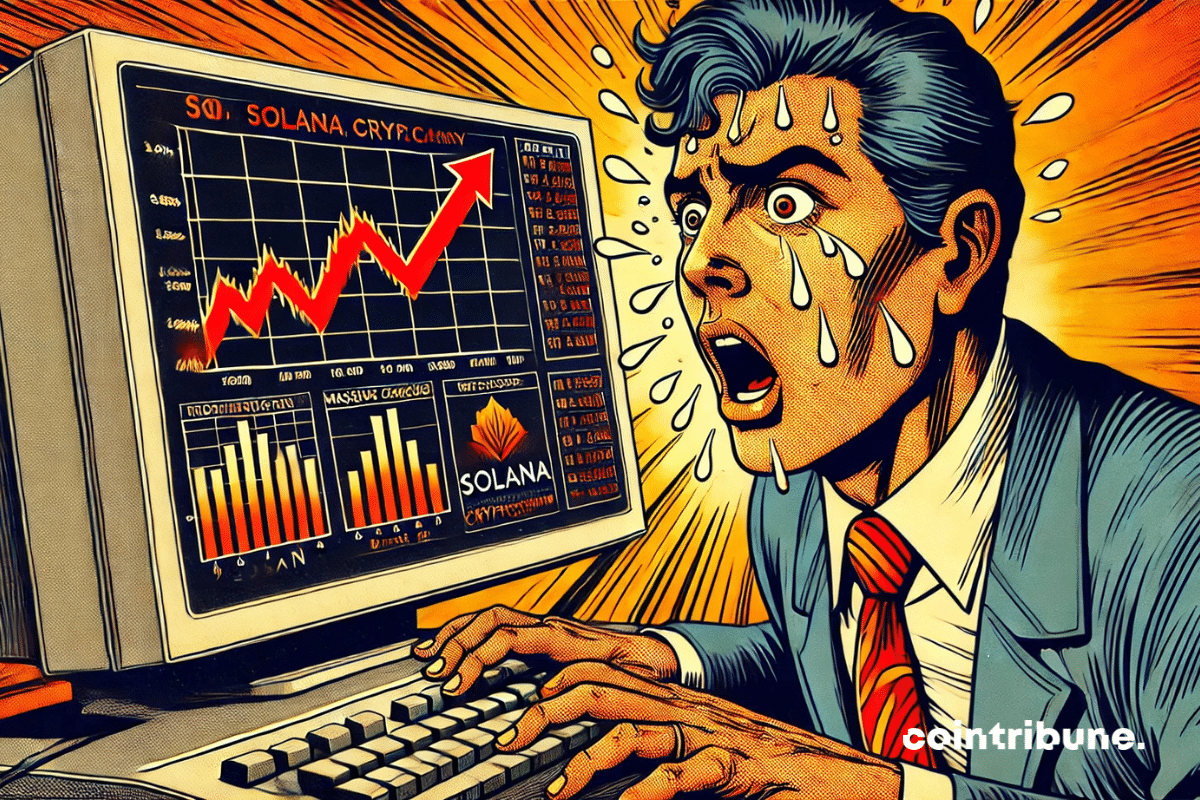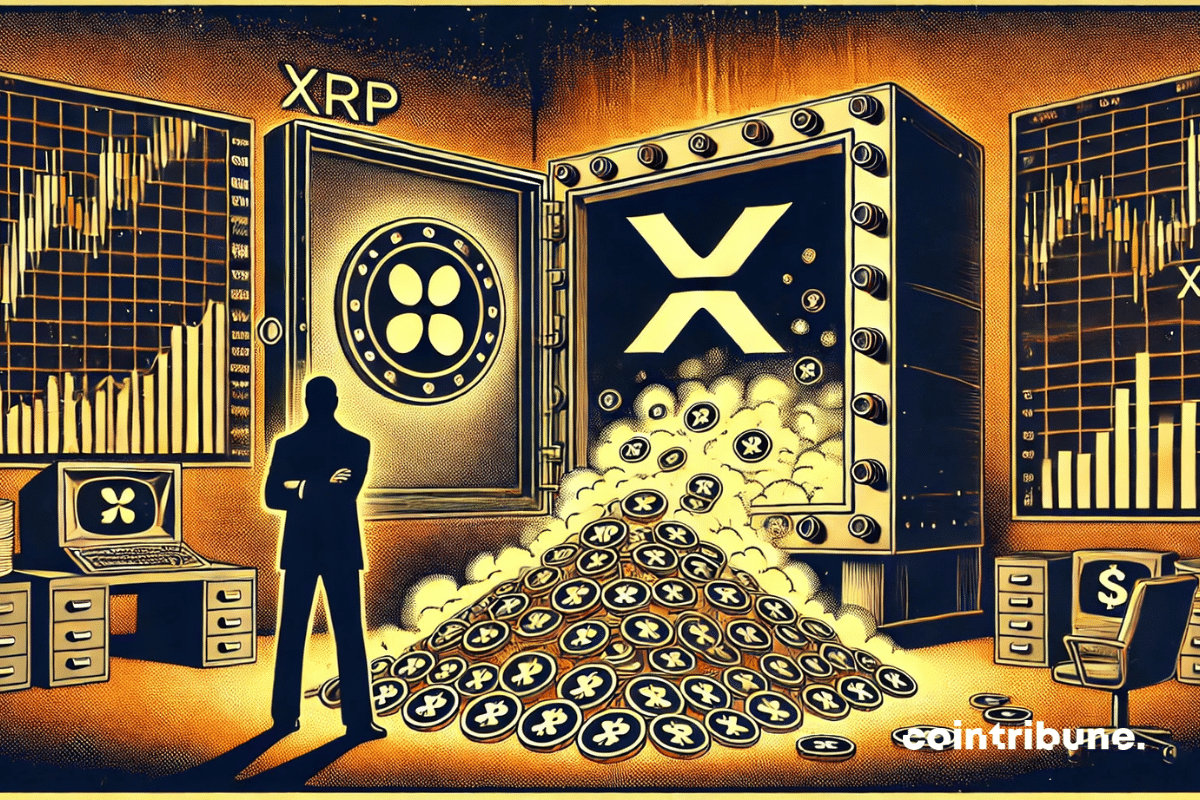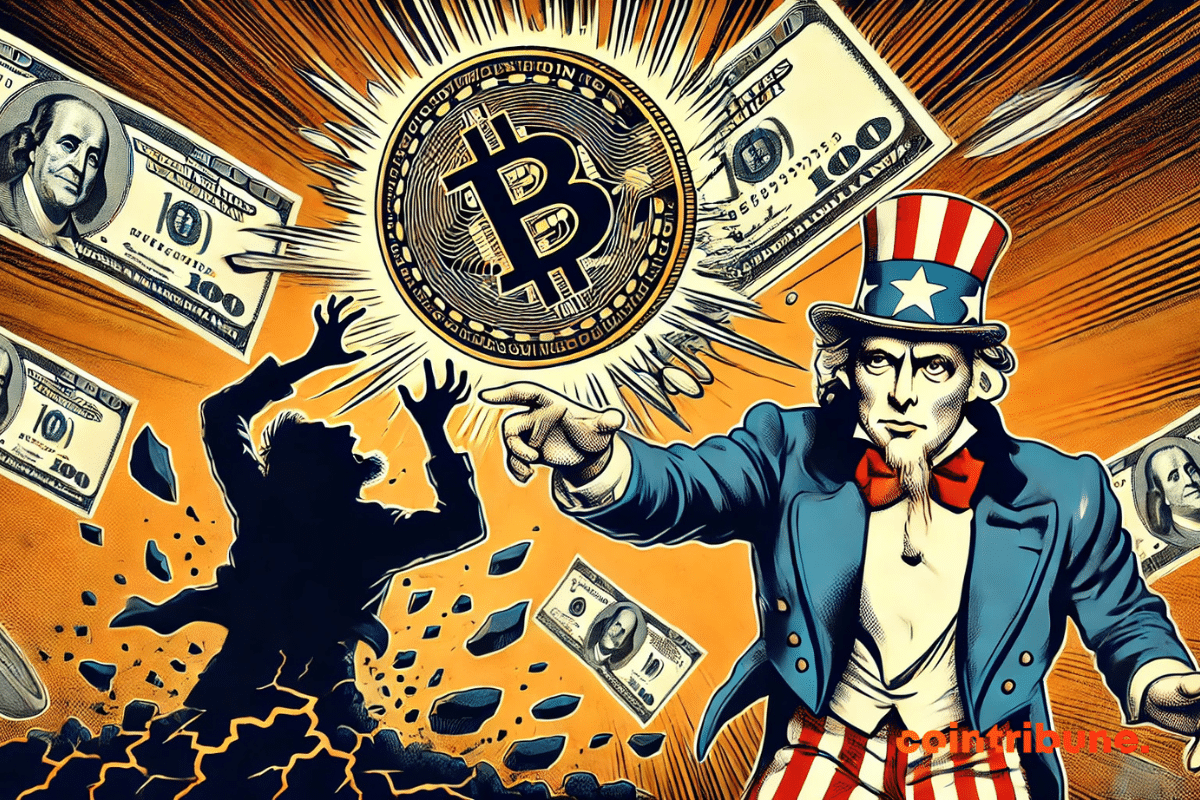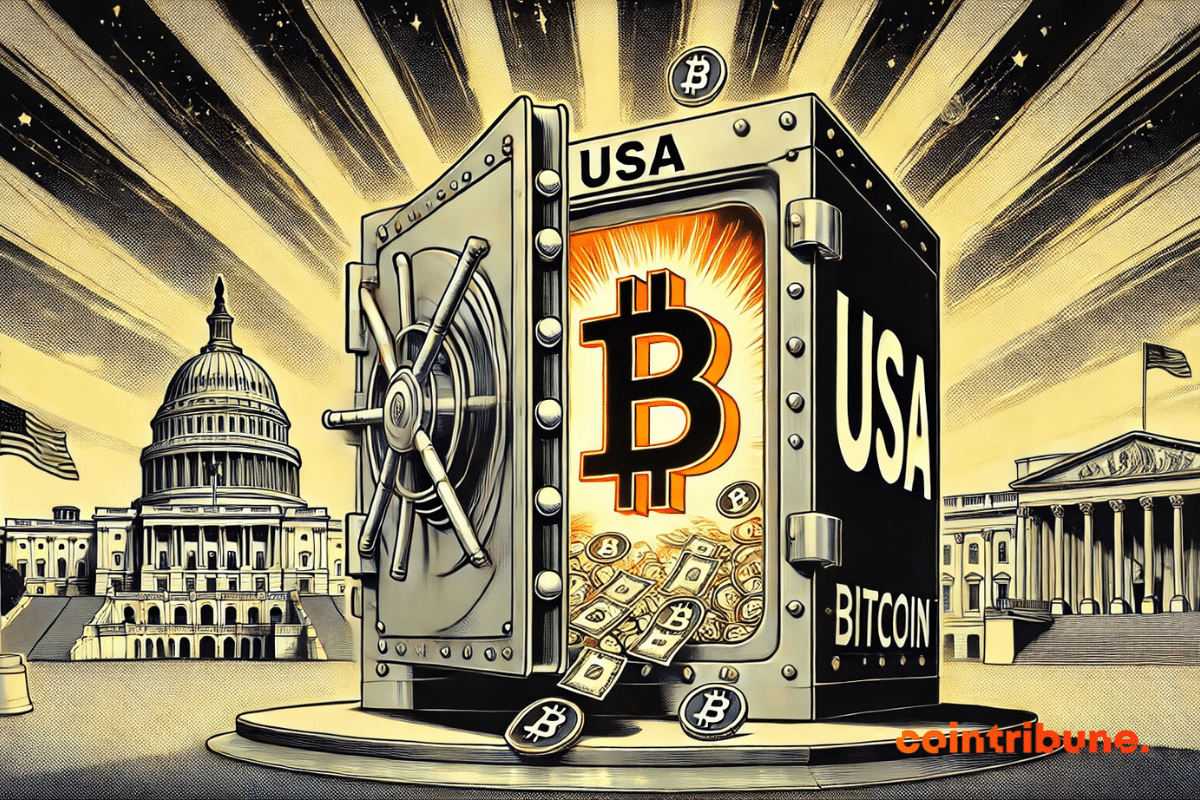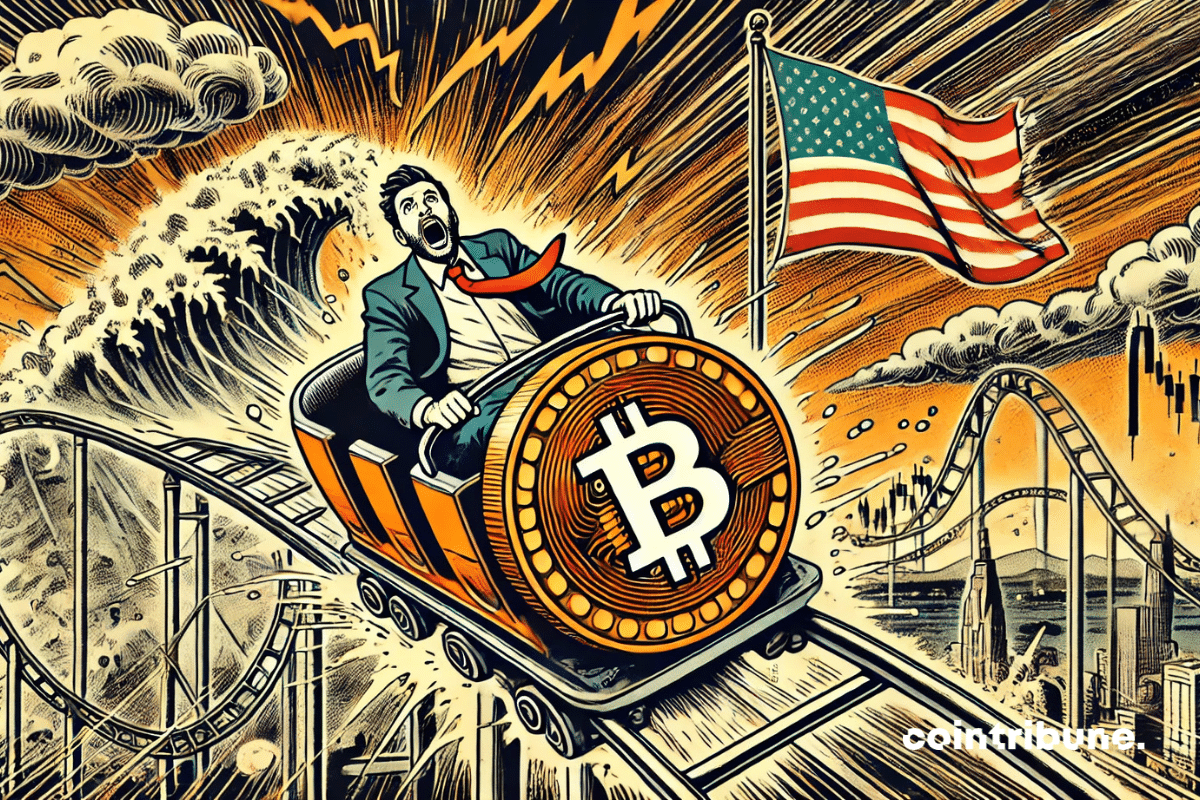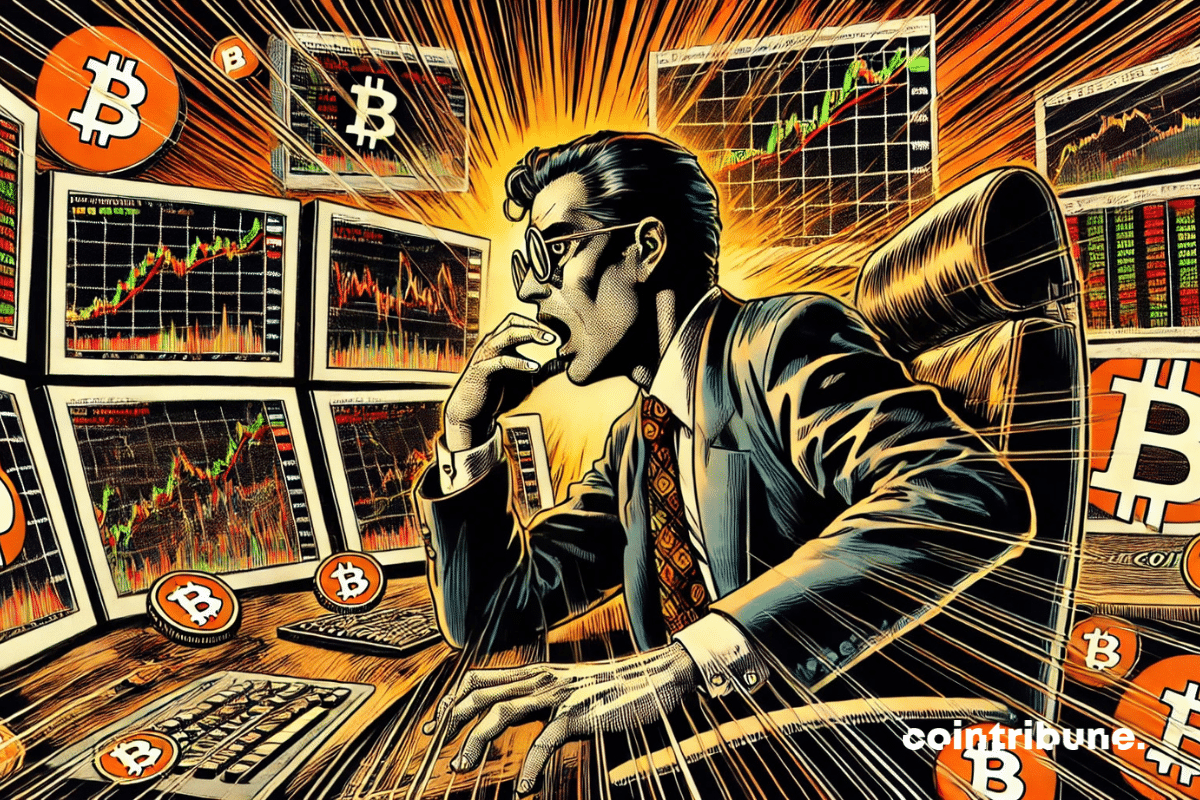Farewell obligations, farewell caution! Ricardo Salinas is casting aside traditional finance and wrapping himself in digital gold. 70% of his empire now rests on bitcoin.
Archive 2025
The economic confrontation between the United States and China is taking on a new dimension. Indeed, far from being limited to traditional exchanges, this trade war is now affecting the crypto market. Thus, between Donald Trump's announcement regarding the creation of a national strategic reserve of cryptocurrencies and the Chinese response to American economic sanctions, investors are witnessing market movements of rare intensity. The question now arises: is this instability temporary or should we expect a lasting impact?
In a context of increasing uncertainty in the crypto market, Solana experienced a capital hemorrhage in February 2025. Investors, burnt by scandals related to memecoins and the recent record hack of Bybit, are massively turning to digital assets deemed safer.
Ripple, one of the major players in the crypto sector, is once again under the spotlight. While the firm is regularly criticized for its management of the XRP supply, its CTO, David Schwartz, made remarks that are sure to fuel the debate. According to him, Ripple has every right to act in its own interest through the sale of XRP tokens, a claim that raises eyebrows within the community. This statement comes as new elements strengthen the questions surrounding the distribution of XRP. A dormant wallet containing over $7 billion in XRP has been identified, and some massive transfers have been spotted in the markets. Between legitimate financial strategy and market manipulation, the question of the impact of Ripple's sales on the XRP price is more urgent than ever.
At the heart of a debate as lively as it is surprising, the crypto universe is under the spotlight. The digital revolution and financial freedom clash with the imperatives of national security. This article boldly and clearly explores the issues related to crypto-friendly regulations and the potential excesses of an exacerbated surveillance state.
The United States has taken the bull by the horns both economically and geopolitically. Many things are going to change and, in the end, bitcoin will find its way.
The extreme volatility of Bitcoin is resurfacing, fueled by a cocktail of economic uncertainties and government initiatives in the United States. As the crypto market tries to stabilize after a high-tension start to the year, the price of BTC is experiencing violent fluctuations. Within a few days, it peaked at $93,000 before plunging sharply below the $82,000 mark. This dynamic reflects the nervousness of investors in light of two major announcements: the imposition of a 25% tariff by the United States on Canada and Mexico, and Washington's ambition to create a national crypto reserve.
On March 5, 2025, major news shakes the crypto world: U.S. Secretary of Commerce, Howard Lutnick, hinted that the Trump administration is preparing to unveil an ambitious strategy concerning a reserve solely of bitcoin. This announcement, scheduled for the inaugural crypto summit at the White House on March 7, is sure to mark a potential turning point in the economic policy of the United States and their approach to digital assets.
Bitcoin, after creating an illusion, falls back into uncertainty. Traders are sweating profusely, caught between vanished hope and growing fear.
The Financial Markets Authority (AMF) now imposes new fees on licensed crypto service providers in France. This measure, established by decree No. 2025-169 of February 21, 2025, is likely to weigh heavily on a sector that is already heavily regulated by the European MiCA regulation.


